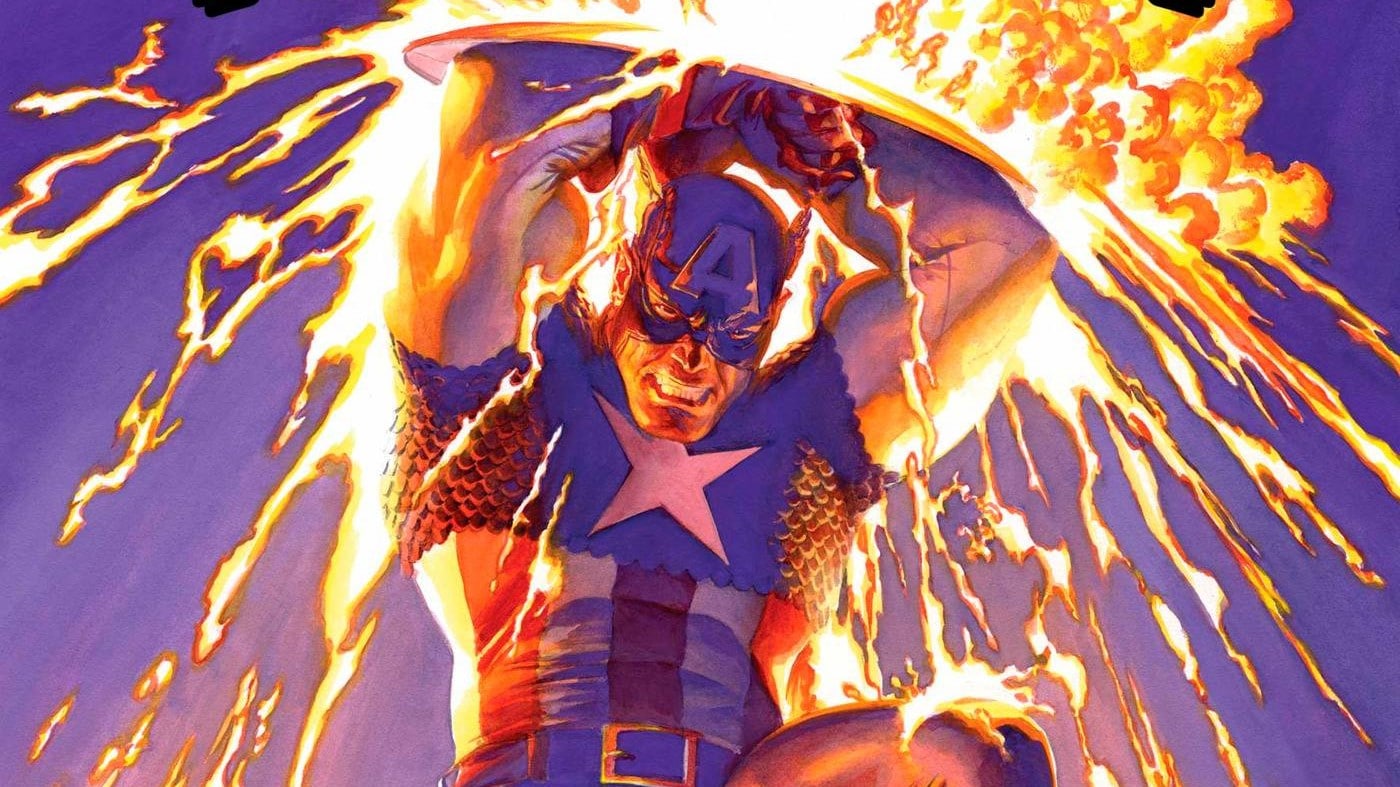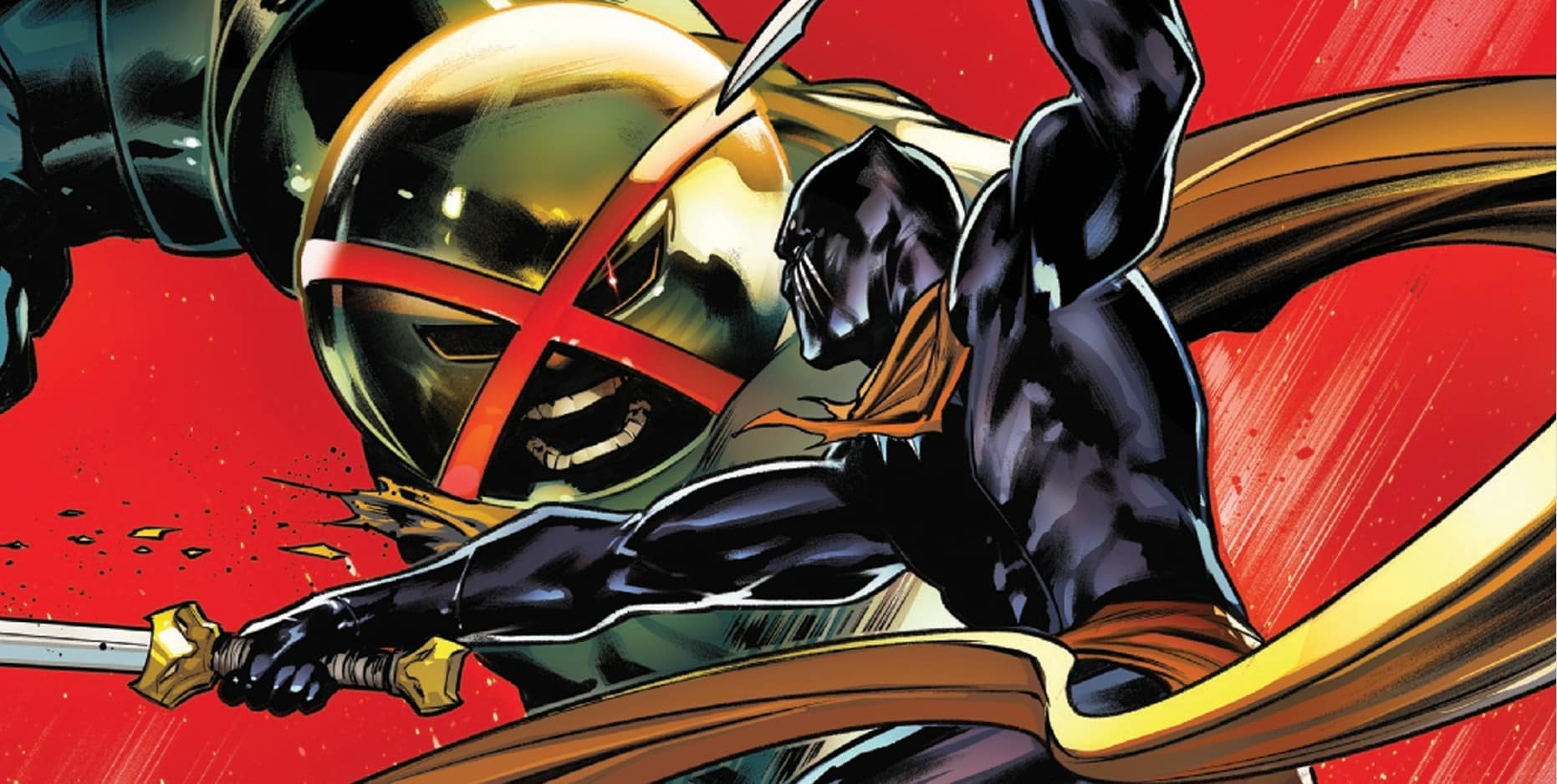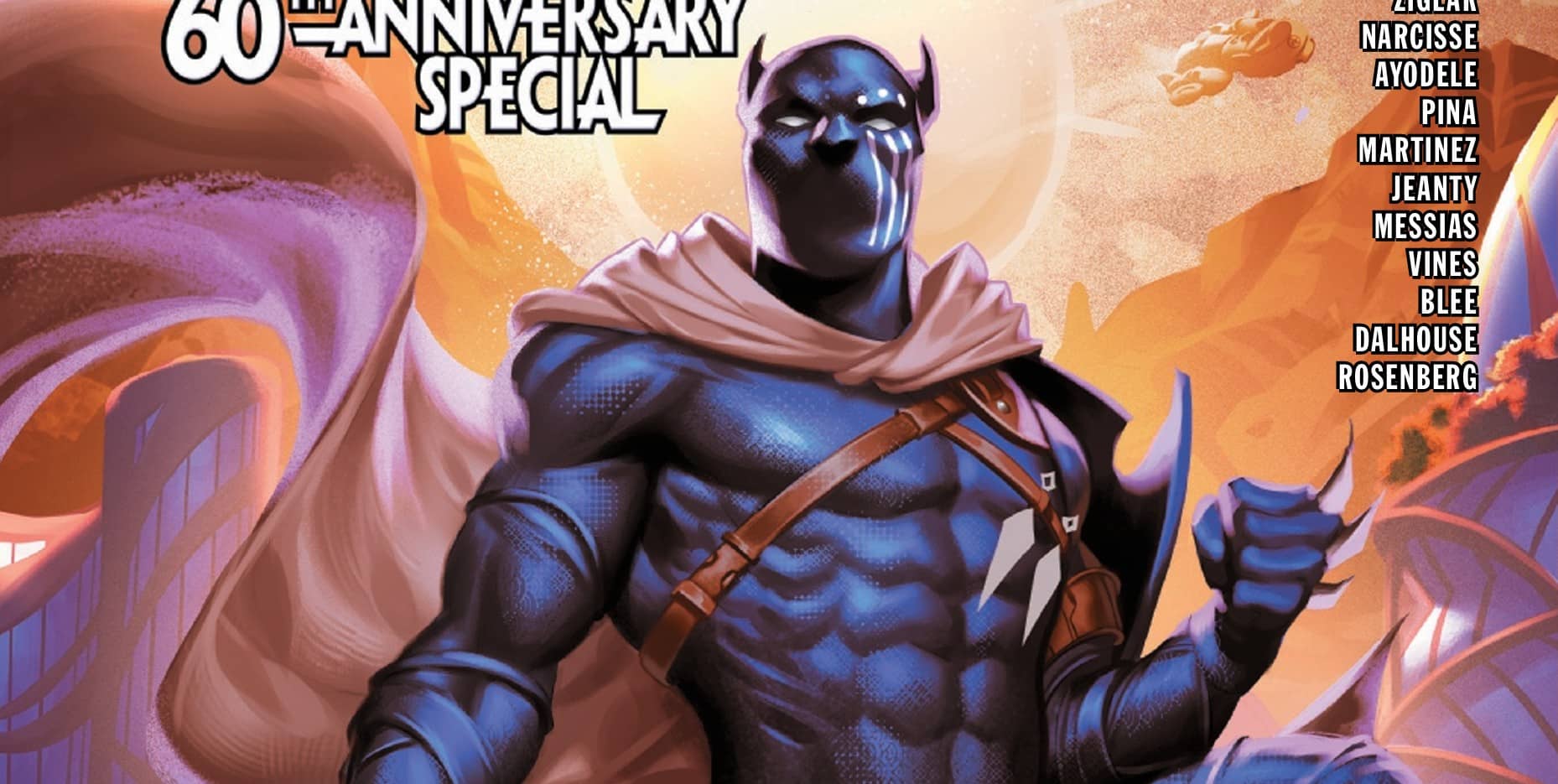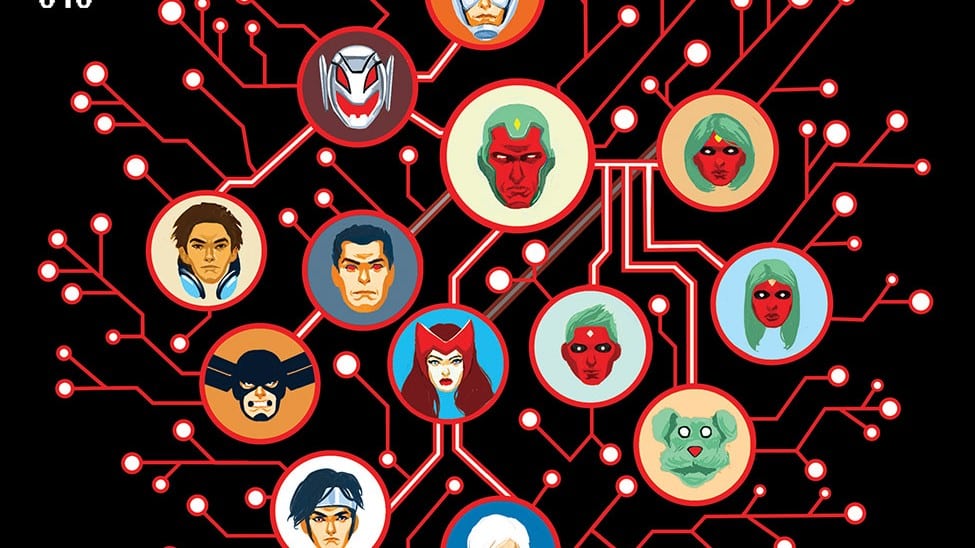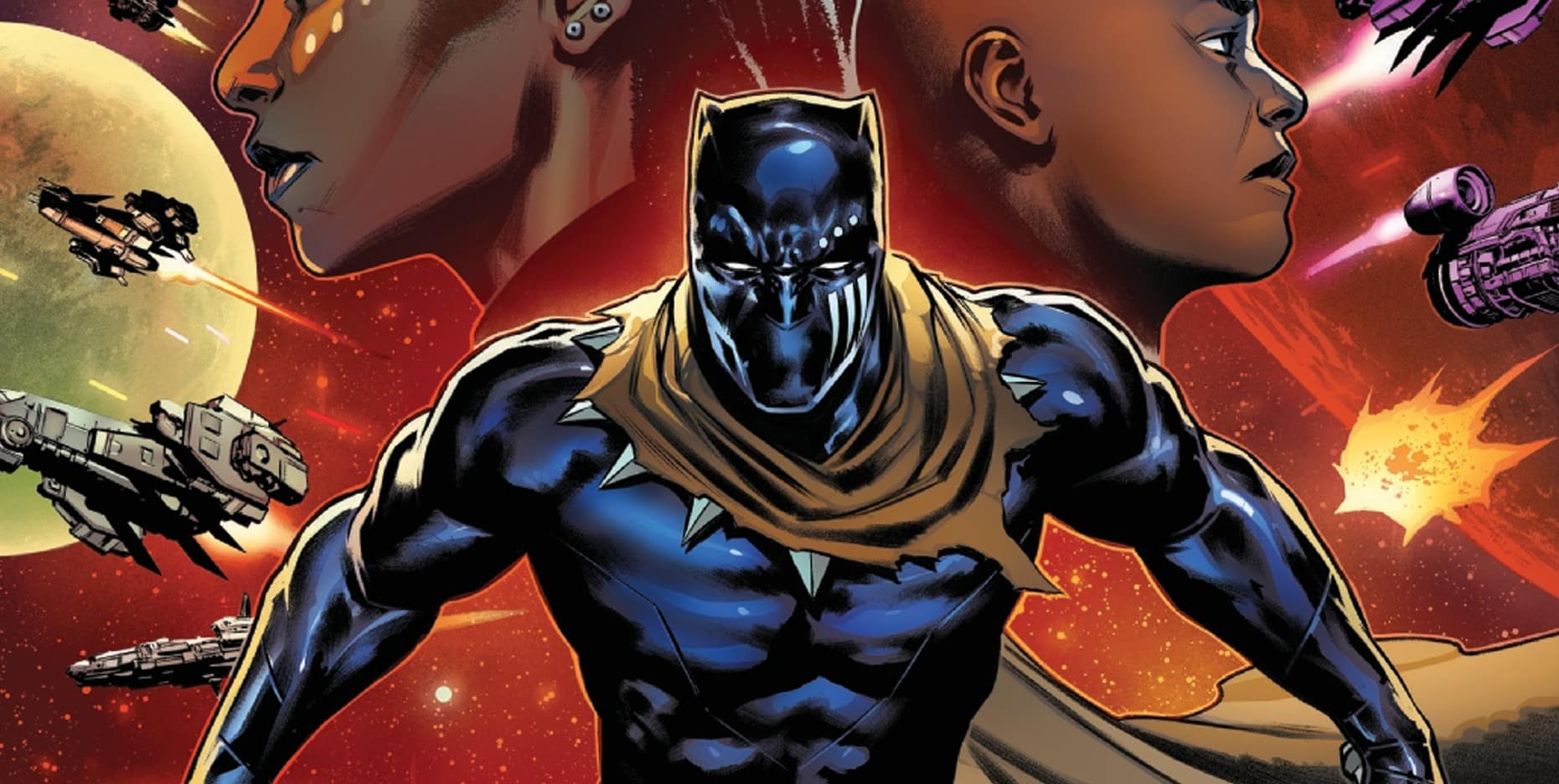When Arnim Zola launches a catastrophic attack on New York City, he meets his match in Sam Wilson and Steve Rogers. In the battle that follows, two Captain Americas (Captains America?) prove better than one, and Sam and Steve decide they might just keep a good thing going. Begin the next era of Caps in Captain America #0 with writers Tochi Onyebuchi, Jackson Lanzing and Collin Kelly, artist Mattia de Iulis and letterer Joe Caramagna.
Dan Grote: You ready to review this comic, Captain?
Vishal Gullapalli: You know I am, Captain.
[Dan and Vishal clasp hands in the form of the Predator handshake.]
Dan and Vishal, together: This comic was wildly mediocre!
The Captains’ States

Vishal: Okay Dan, I want to start this off by just talking about what’s been going on with Captain America, both as a character and as a franchise, in the last few years. Because I think it’s important to note that there hasn’t been a solo Captain America ongoing since July 2021, when Ta-Nehisi Coates wrapped up his run. Since then, we’ve had the monthly miniseries The United States of Captain America by Christopher Cantwell, which was… let’s say underwhelming. Which was then followed up by another 5 issue series, Captain America/Iron Man by Derek Landy, which I straight up didn’t read.
All this to say, Captain America has been in a weird position in the comics for almost a year now, and this Captain America #0 promises to lead into not just another Captain America solo run, but two runs – one focusing on Steve, and one focusing on Sam. What was your experience with this “Year Without A Captain”, Dan?
Dan: This post-Coates year has been disappointing for Captain America across media. I wanted to love United States of Cap, but as an experiment in well-intended by-committee storytelling, it missed the mark, creating characters I fear will fade into the dustbin of history sooner rather than later (they at least showed up here in a random panel). Captain America/Iron Man I also skipped, because I simply have no interest in that dynamic.
The biggest disappointment though was The Falcon and the Winter Soldier on Disney+, another piece of Cap media I WANTED to love, because Sam Wilson is one of my favorite non-X-Men characters. But it fell prey in the most high-profile way to the Disney philosophy of giving the illusion of having something to say but ultimately having the villains echo leftist talking points. Kinda like Arnim Zola here. Cap — be it Steve or Sam — needs someone at the helm who’s willing to have the tough conversations about the state of America (he said, knowing full well that Marvel editorial is probably only going to allow so much leeway, sigh). At least from the Steve Rogers side of things, I don’t think we’re getting that (there is a glimmer of hope at the end that Sam’s story will be different). How about you, Vishal, what were your impressions of this book?
Vishal: Unfortunately, my impressions were very similar to yours. Captain America #0 felt bland and purposeless in a way reminiscent of the Silver Age, when comics were just not allowed to have those hard conversations. Here it’s just… a lack of ambition? Captain America #0 feels like it cares more about establishing a feel-good buddy-cop relationship between Steve and Sam than saying anything about Captain America as a concept or what it means to actually have two men hold the shield. Zola spouts his usual supervillain shtick, Steve tells him it won’t work because Zola is Evil and Captain America fights for Good, Sam does some John Cena-esque “never give up” (or did Steve, their two sequences are so similar…) and they stop Zola’s rocket from going into the sun. Hooray.
For all of its flaws, Nick Spencer’s Captain America run felt like it had more to say. Even if its ultimate message was “the right wing is bad, but don’t go too far left or you’ll be bad too” it was at least a message? The closest thing to a message I can find in this issue is “Captain America fights for the ideals of America rather than what it currently is” which is basically the equivalent of “Superman fights for hope.” It’s meaningless, and even worse than that, it’s not even original.
Dan: This comic is a concert where the band comes out and literally tells the audience, “That’s right folks, we’re playing the hits! Don’t worry, we’re seeding the Red Skull’s return in here somewhere, too.” As an old-head, I’ve read Englehart, I’ve read Kirby, I’ve read Stern and Byrne, I’ve read Gruenwald, I’ve read Waid, I’ve read Brubaker, I’ve read Spencer (up to a point), I’ve read Coates. I’ve heard the hits, over and over again, remixed and remastered, even the extended cut with the Nelly Furtado bridge. If I want to see Cap run through the same Zola-Zemo-Batroc-Crossbones-Skull gauntlet over and over again, there’s an Essential or an Epic Collection for that. At least then I’ll get Cap-Wolf.
One thing I will say in this book’s favor: I haven’t seen de Iulis’ artwork before. He’s got an Alex Ross-meets-Esad Ribic thing going (I know, I know, say “painterly style” without saying “painterly style”). And while I find the presence of Arnim Zola tiring, de Iulis is finding creative ways to draw his face into the technology of the rocket and all the Zola bots terrorizing New York. As an art piece, it’s cool.
Sam ol’ Situation

Dan: So as I mentioned before, I love the Sam-Steve dynamic. Sam has always felt like a better, more equal partner to Steve than Sharon Carter or, dare I offend an entire segment of Ao3, Bucky. Their dynamics has lent itself to some of the more interesting — if not flawed — explorations of social issues in the comics, especially in the late Silver and early Bronze ages. They’ve been through a lot, so I could see why their current relationship would be without tension. But I can’t get down with this bro-y buddy cop status quo they’ve got going on that, near as I can tell, started in The United States of Cap. I still need a little more Riggs and Murtaugh in the first Lethal Weapon. On the outset, it’s charming, action-hero dialogue, but I feel like you can replace the characters, remove the constant use of the word “Captain,” close your eyes and see, I dunno, Superman and Steel or Spawn and Spawn’s best friend Ryan (that’s a character, right?). Vishal, where are you at with these two as a work couple?
Vishal: I’d agree with your assessment that Sam is Steve’s best partner, but honestly I think Sam in general is a better character. He’s more interesting to work with and also has a level of melanin that I find relatable. His conflict when holding the shield feels more tangible, as someone who’s actually suffered under the flaws of this country as compared to the blonde-haired blue-eyed everyone’s-favorite-white-boy Steve.
I do agree that in both USofC and in this book, Steve and Sam’s banter is generic. It feels like it holds even less personality than their MCU counterparts, who at least have actors capable of turning generic buddy cop banter into something more engaging. More than that, it feels like Sam didn’t have a personality at all in this issue. I mentioned the “Never Give Up” earlier, but I think it’s worse than that – there’s almost nothing distinguishing the two as people.
Dan: Except when Zola’s calling him out. “What about the carceral state? What about forest fires? That sucks, right?” Sure, guy, whatever. Still not interested in turning people into dinosaurs, though. Besides, Sauron did it better.
But I’ll tell you the bit of dialogue that really chapped my stars and stripes. The “what adjective are you gonna put before Captain America” thing. “You gonna be the Astonishing Captain America, or is that gonna be me?” It’s not like Peter and Miles had this same discussion. Or did they? I haven’t read the Spider-Men minis. Point is, it’s just an unnecessary bit of fourth-wall breaking. It’s a Deadpool bit. And he’s not scheduled to show up until Sam’s second solo issue.
Not to mention the fact that the titles their books are actually getting — Captain America: Sentinel of Liberty (Steve) and Captain America: Symbol of Truth (Sam) are just way too much word salad, so in a way, Astonishing Captain America might be a better title. But not really.
Vishal: Look, at least with the Spencer era, the books were just called Captain America: Steve Rogers and Captain America: Sam Wilson. People were clearly showing their ass when the Steve book got significantly more sales than the Sam book, but it was easy to understand. I am absolutely going to forget which title is which by the time the #2s roll around. Which isn’t the fault of any of the creative teams so much as an editorial/corporate failing. We need to do better than this.
The Future Is Flag-Draped

Dan: One thing I truly want to know is how much Tochi Onyebuchi, the writer who will be shepherding Sam going forward, contributed to this book. So much of Captain America #0 feels like Marvel house style, such that the only page that really stands out is the flashforward in which an unfamiliar character is villain-monologuing about Sam and Wakanda. Vishal, you had insight into what was going on here, right?
Vishal: Yeah! So, there’s like a 5% chance I’m wrong, but the more I think about it the more confident I am. At the end of the issue, a mustached white man says some ominous stuff while Sam is celebrating with a crowd, including mentioning that his brother is the King of Wakanda. There’s exactly one mustached white man who calls T’Challa his brother — Hunter the White Wolf, a character created by Christopher Priest.
Hunter’s a fantastic character, one of the highlights of Priest’s Black Panther run. He was a white boy whose parents died in a plane crash right outside Wakanda’s borders, and the Royal Family, T’Challa’s parents, chose to adopt him. When T’Challa was born, Hunter became very jealous that the trueborn son of his adopted parents would be their true heir. His ambition led to his appointment as the White Wolf, the leader of the Hatut Zeraze, Wakanda’s secret police.
If you think “secret police” sounds bad, it’s because they are. When T’Challa ascended to the throne, he disbanded them for their brutality, causing Hunter to leave and become a mercenary. He maintains a rivalry with T’Challa while continuing to love Wakanda — a dichotomy that leads to them being allies just as often as enemies. It’s a relationship I deeply enjoy, and makes both characters really engaging to read.
Hunter’s presence in this issue and the tease that he will be a meaningful antagonist in Tochi Onyebuchi’s series are incredibly promising. He’s a character who’s had only a handful of appearances since Priest’s run on Black Panther ended, making him a really interesting pull for a writer doing his first Marvel work. I’ve read Riot Baby and found it enthralling, and if Onyebuchi can bring even a fraction of the palpable tension and emotion in that book into his Captain America’s focal characters, we’ll have a certifiable classic on our hands.
Dan: That’s rad! Thanks for sharing all that. Also excited to see R.B. Silva drawing Sam’s book. Based on all that, it sounds like Symbol of Truth [Ed. Note: That’s the Sam book] is worth keeping an eye on to start. As for Sentinel of Liberty [Ed. Note: That’s the Steve book], if Captain America #0 is a taste of what the rest of the team will bring to the table, I worry it will be easily skippable.
Marvelous Musings
- Zola’s rocket looks like a dick. Surprised no one thought to do an Austin Powers riff.
- Rockets are Cap’s “Why’d it have to be snakes?”
- Mattia de Iulis is a pretty stunning artist, but seeing his work with bright colors is a far cry from what I’ve come to expect based on his work on Jessica Jones.

